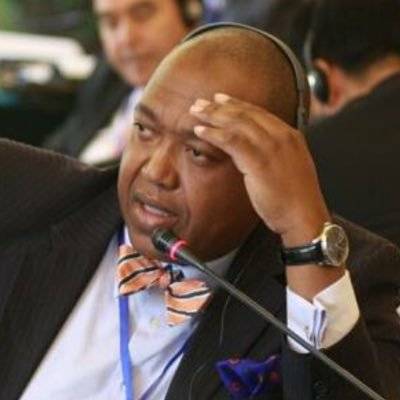The disappearance of journalist Jamal Khashoggi in Istanbul has raised a number of questions about the safety and security of dissenting voices in the Kingdom of Saudi Arabia, especially those critical of Crown Prince Mohammad Bin Salman. The country that prides itself on being the custodian of the two holiest places in Islam, Makkah and Madinah, is accused of torturing and eventually murdering Khashoggi.
According to Khashoggi’s fiancée, Hatice Cengis, he entered the Saudi Consulate in Istanbul on 2 October and never came out. She claims to have waited outside the building for 11 hours before raising the alarm. Some reports claim that Bin Salman “ordered the murder of Khashoggi,” which the government in Riyadh denies. It insists that the journalist entered and left the Consulate, even though the Turkish authorities say that Khashoggi entered but never came out again. The consulate has failed to provide video footage of Khashoggi leaving the consulate to support its claim and when pressed to provide the footage it said that the cameras were not recording on that particular day.
Some aspects of Khashoggi’s disappearance should be of great concern to the whole world. Like Egypt, Saudi Arabia has become used to acting with impunity when it comes to violations of the human and civil rights of its own citizens. There have been multiple incidents of human right abuses in the Kingdom, including torture, detention without trial and suppression of freedom of expression.
Khashoggi’s fiancée: ‘I’m on the brink of collapse’
According to Human Rights Watch, for example, Saudi prosecutors are seeking the death penalty for a prominent cleric, Salman Al-Awda, based on a host of vague charges related to his political statements, associations and positions. Little has been reported in the Western media about Al-Awda’s ongoing trial and many like it. Perhaps it was the turning of such a willing blind eye that encouraged Saudi Arabia to target Khashoggi, but it has miscalculated in this case.
Khashoggi managed to create strong relationships with a number of Western-based organisations and influential individuals during his self-imposed exile in the US and Turkey. He also participated in many conferences and contributed to a number of publications, including Middle East Monitor and the Washington Post. It is this prominence that prompted the headlines about his disappearance.
Anger and frustration are growing across the international media fraternity, with many calling for action against the perpetrators. There has also been shock and anger among Muslims around the world, some of whom are now calling for the “Vaticanisation” of Makkah and Medina. They argue that such a move might be the only political situation that could guarantee the safety and security of Muslims in Saudi Arabia henceforth.
Muslims are critical of the Saudis for various reasons; many visit the country every year for religious purposes. “Vaticanisation” would make the Holy Cities independent sovereign territory within Saudi Arabia, just as the Vatican City State is within the city of Rome. The Vatican City State provides the Holy See with temporal jurisdiction as well as independence.
US calls on Saudi to support ‘thorough investigation’ into Khashoggi’s case
Such status for Makkah and Madinah could provide some sort of sanctuary, not only for Saudi dissidents but also non-Saudis. It could also help those countries with soured relations with Riyadh whose citizens have been denied visas to perform their religious obligations. “Qatar has accused Saudi Arabia of barring its nationals from performing this year’s Hajj, a charge Saudi officials deny,” reported Al Jazeera earlier this year. “Around 1,200 Qatari citizens are allowed to attend the pilgrimage under a quota system, but Qatari officials say it has become impossible to register for the annual religious event.” Hajj is one of the five pillars of Islam; Muslims who can afford to do so are required to perform the pilgrimage at least once in their lifetime.
Under the present political system, the Saudi government has absolute control over who can and cannot perform Hajj or Umrah, the lesser pilgrimage. Those calling for Vaticanisation argue that if Makkah and Madinah are meant for all Muslims, then nobody should be excluded from visiting them. The only solution, they say, is that the two cities must be freed from Saudi sovereignty.
#KhashoggiDisappearance
Yet other Muslims are calling for a boycott of Saudi Arabia, although the proponents of the “Vatican” call argue that their idea does not threaten the institution of the pilgrimage. Indeed, a boycott of Saudi Arabia would be difficult given that millions of Muslims spend their whole lives praying and saving for Hajj.
Discussion about the Vaticanisation of the holy cities is important, and should be taken seriously, as it is about safety and security. It could ultimately lead to better administration of the pilgrimage process, which is often found wanting and, as has been shown, discriminatory along political lines as and when the Saudi authorities want it to be.
The views expressed in this article belong to the author and do not necessarily reflect the editorial policy of Middle East Monitor.


![Police set up barricade in front of Saudi consulate as the waiting continues on the disappearance of Prominent Saudi journalist Jamal Khashoggi in the Consulate General of Saudi Arabia in Istanbul, Turkey on 11 October 2018 [Ahmet Bolat/Anadolu Agency]](https://i0.wp.com/www.middleeastmonitor.com/wp-content/uploads/2018/10/Disappearance-of-Prominent-Saudi-journalist-Jamal-Khashoggi20181011_2_32808478_37992400.jpg?fit=1200%2C800&ssl=1)

![Where is Jamal Khashoggi?... - Cartoon [Sabaaneh/MiddleEastMonitor]](https://i0.wp.com/www.middleeastmonitor.com/wp-content/uploads/2018/10/IMG_1174-1.jpg?resize=933%2C666&ssl=1)








